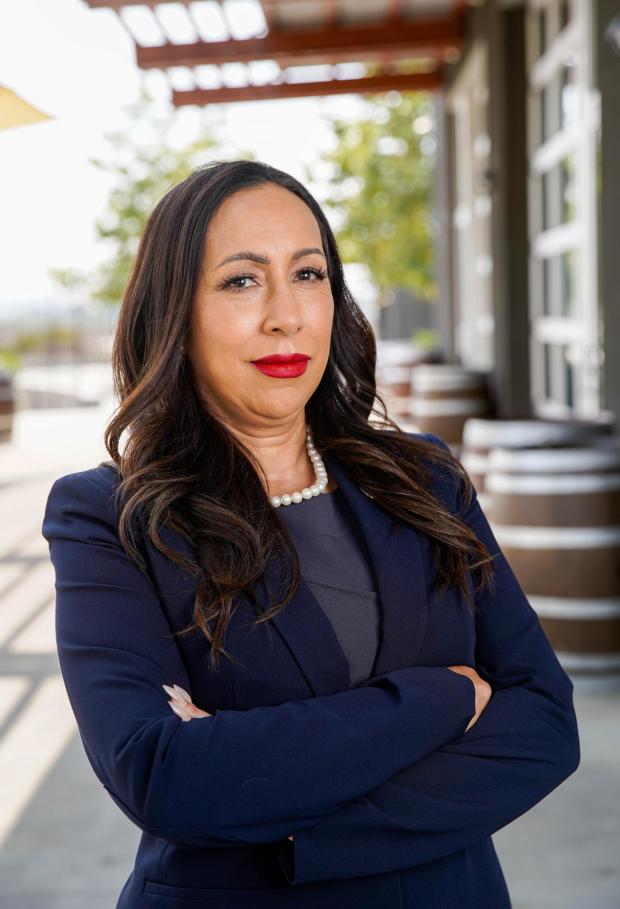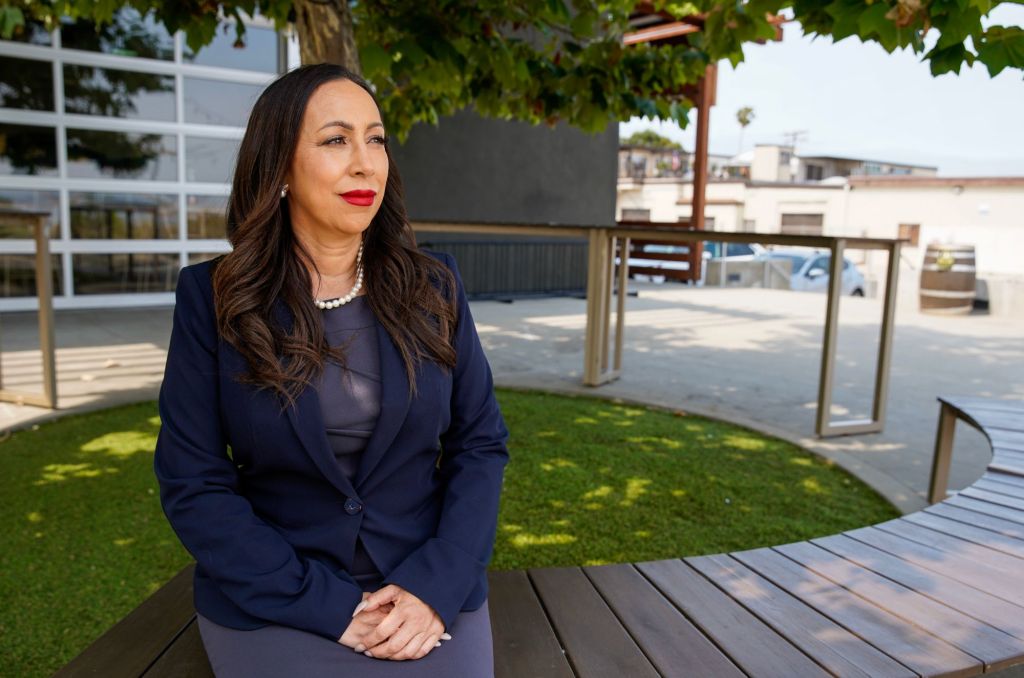Paloma Aguirre’s path to helping San Diego Democrats secure control of the Board of Supervisors for years to come began after a cross-country flight.
Back in December, Aguirre, the mayor of Imperial Beach, had just returned from Washington, D.C., where she unsuccessfully pushed for the Biden administration to declare Superfund status for the Tijuana River Valley’s sewage crisis.
Scrolling her phone at the baggage claim, Aguirre saw the news that would define county politics for months and transform her own political career: Nora Vargas, arguably at the height of power, had decided not to serve out her next term on the Board of Supervisors.
With the sewage crisis, Aguirre had been a foil to Vargas, who had opposed the petition for Superfund designation and had tried to temper concerns about air safety.
That moment at the airport would ultimately propel Aguirre to where she is today — a newly elected county supervisor who now has a major platform to push for the county to play a bigger role in mitigating the crisis.
“We have so much that the county should be doing,” Aguirre said. “I remember thinking that if somebody that I see could be helpful to us steps up and runs, we’ll back them. But they didn’t. So here we are.”
Aguirre’s victory in this week’s special election for District 1 supervisor also restores the board’s Democratic majority, which has sought in recent years to chart the county out of decades of Republican rule.
Aguirre’s victory coincides with Congress’ passage on Thursday of President Donald Trump’s signature domestic policy legislation, a package that slashes Medicaid funding, imposes twice-yearly work requirement check-ins on patients who rely on it, offloads some of the cost of food stamps to states and boosts the budget of U.S. Immigrant and Customs Enforcement twelvefold to $100 billion.
Democrats worry about what impacts each of those changes hold for low-income residents, immigrants and those that struggle with mental health issues and homelessness.
“Our job as a county is in a way to put a force field around San Diego to protect us from the worst impacts of the Trump administration and what’s happening in Washington,” said Supervisor Terra Lawson-Remer, the board’s acting chair. Its acting vice chair, Monica Montgomery Steppe, did not respond to a request for comment.
A five-point plan
Last month, supervisors passed a plan lobbied for by Aguirre that would get the county involved in the Tijuana River Valley sewage crisis more than ever before.
 Newly elected San Diego County Supervisor Paloma Aguirre poses for photo in Imperial Beach on Thursday, July 3, 2025. (Alejandro Tamayo / The San Diego Union-Tribune)
Newly elected San Diego County Supervisor Paloma Aguirre poses for photo in Imperial Beach on Thursday, July 3, 2025. (Alejandro Tamayo / The San Diego Union-Tribune)
Under that plan, the county would expand its study of the sewage crisis’ health and economic impacts, expand an existing air filter distribution program and hire a staffer dedicated to the crisis. It would also eliminate a hot spot on the river at Saturn Boulevard where disruptions to the river flow cause greater aerosolization of toxic sewage gas.
Correcting the natural flow of the river and building a bridge over the site would cost between $7 million and $14 million and require coordination with the city of San Diego, the Navy and the Regional Water Quality Control Board, Aguirre said.
Under the legislation, county staff have to prepare findings on the plan’s proposed measures for how feasible they are and how much they would cost to fully implement.
Once Aguirre is sworn in on July 22, making sure county bureaucracy isn’t slowing down research into those measures will be a top priority.
“I’m absolutely going to dig into that — because if that’s going to be used as an excuse to move slowly, then we’re going to pass something to expedite it,” Aguirre said.
‘It’s just political will’
For Lawson-Remer, her party’s new board majority will work to implement a doctrine for the county’s role under the second Trump administration, as she sketched in her April State of the County speech.
“We have to take control of our own destiny and protect our own community,” Lawson-Remer said. “And we can do it. We’ve got tools, it’s just political will and leadership.”
Real price tags for the county are already materializing with Trump’s signing of his domestic policy package.
With new cuts to Medicaid, the county will lose $10 million for behavioral health programs, according to a county analysis of Trump’s legislation. The county will eventually need $136 million each year for new cost-sharing requirements for food stamps, set to take effect in 2028. Complying with new Medicaid work requirements will likely require more staff, though it’s still uncertain how many.
Beyond triaging Trump’s impact, Lawson-Remer wants to use the new Democratic majority to turn the county into a business watchdog via a new consumer protection division. Planning is already underway by county staff to use legal settlement money to fund the office, and Lawson-Remer envisions it suing health insurers, polluters, payday lenders and fire truck manufacturers.
But one major hurdle to whether Democrats can pull off their agenda remains: how they’re going to pay for it.
Measures for the sewage crisis and countering Trump’s domestic agenda require county staff to probe available funding, from grants and philanthropy to new taxes and an overhaul of how the county calculates its reserves.
At the moment, no specific new tax ballot measures are being considered, Lawson-Remer said.
But the county’s biggest public-employee union — a big linchpin of Democratic supervisor victories, including Aguirre’s — will be pushing for one.
Key priorities for SEIU Local 221, which represents more than 10,000 county workers, will be advocating for a new revenue ballot measure, freeing up county reserves and getting supervisors more involved in their pledges to reform the county’s workplace culture, said Crystal Irving, the union’s president.
On that front, there’s plenty of room for the new majority to be “rolling up their sleeves,” she said.
“Passing (legislation is) one thing, but of course it’s always about how they’re implemented, how they’re interpreted and how they materialize from that point,” Irving said.
Originally Published: July 5, 2025 at 5:00 AM PDT
